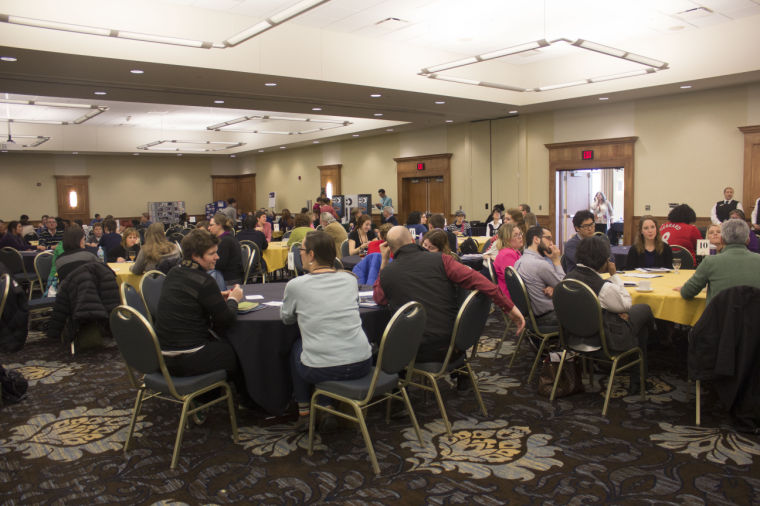Campus hosts second annual SOGI conference
Oakland University hosted the second annual Michigan Sexual Orientation and Gender Identity Education Conference March 9 from 8 a.m.-5 p.m.
The conference, which is a part of the SOGI Initiative of the School of Education and Human Services, has the goal to create more supportive and inclusive educational environments for gay, lesbian, bisexual, transgender, queer, questioning and intersex people.
“At this year’s conference, we were able to expand the breadth and depth of our sessions and workshops,” Timothy Larrabee, associate dean of the SEHS, said. “We had four trans-focused sessions on the program compared to one last year.
This year we also attracted greater participation from organizations seeking to market their programs at information tables, and we were also able to offer continuing education credits for teachers, school counselors and social workers.”
This year’s conference featured six workshops, 18 concurrent sessions, round-table discussions and a performance from the Riot Zone’s Gayrilla Theatre which discussed survey results distributed to students in the Ann Arbor area about the how comfortable students feel at school.
Inside the sessions
Grace Wojcik, coordinator of the Gender and Sexuality Center, lead the Creating Safe Space Ally Trainings workshop.
In this session, they discussed how to create effective Safe Space Ally training sessions for instructors, staff members and students in order to create a comfortable environment to discuss SOGI issues.
“Students are coming out younger and younger,” Wojcik said. “Safe zones help students feel a sense of belonging in schools.”
She discussed how OU uses Safe Zone signs, bracelets, pins and other resources in to help the cause.
“You have to determine your school’s culture and cater to that,” Wojcik said.
Looking back at the conference
Larrabee said his favorite aspect of the event is the great response they get from participants and the positive difference it makes in people’s lives.
“When community activists and session facilitators report back that they learned something new that will help them in their work, I feel we have done our job. And when classroom teachers and school administrators report they will change their policies and practices to create safer more inclusive communities in their classrooms, schools and school districts, I feel we have done our job.”
At the end of conference, Larrabee said they plan on holding a third annual event.O








